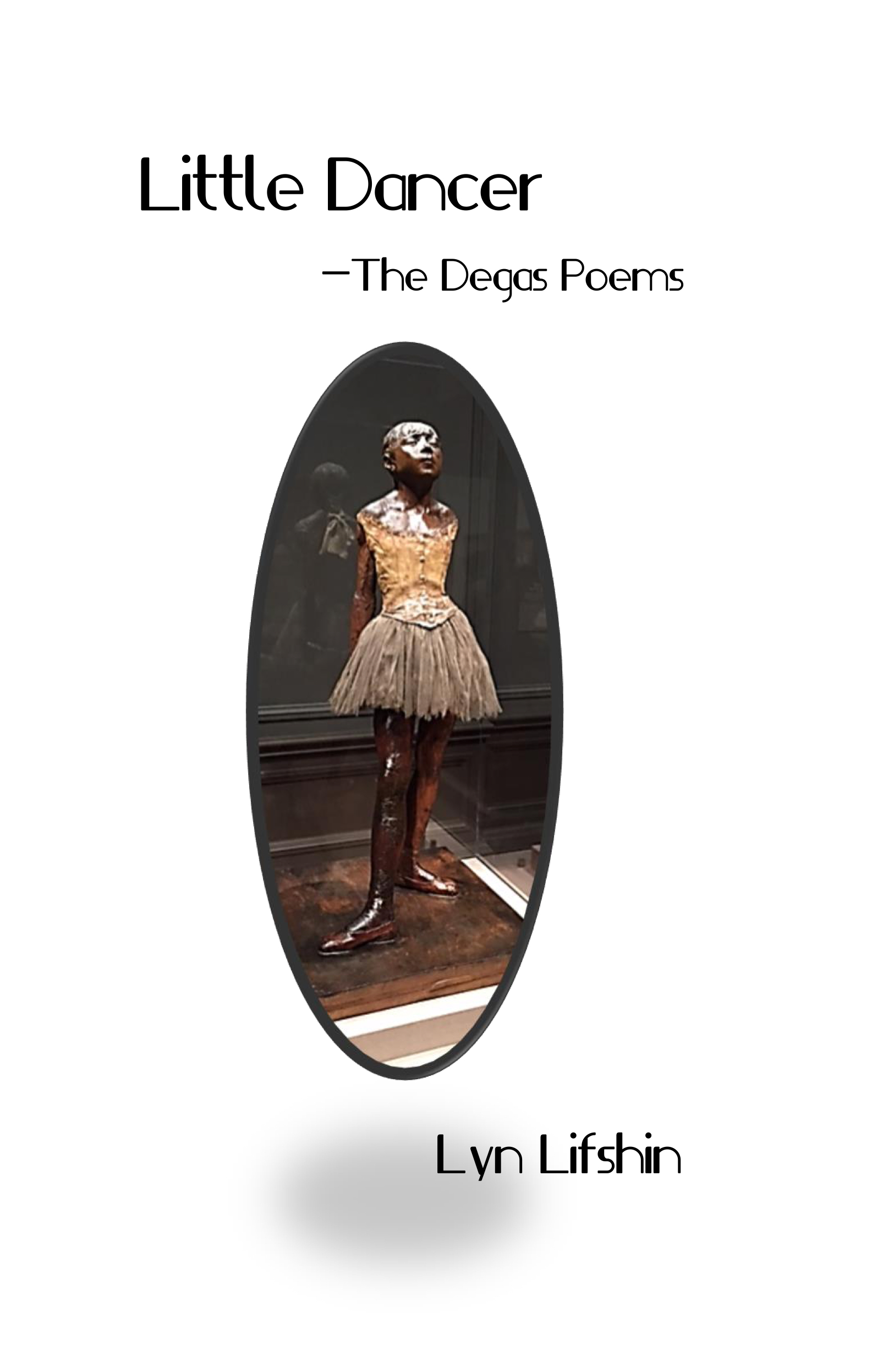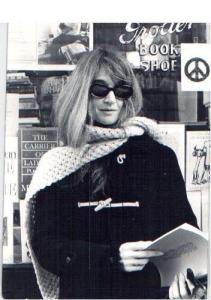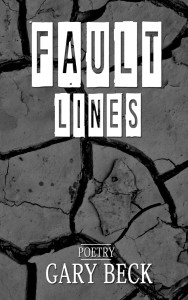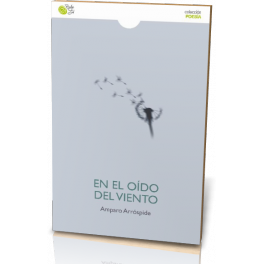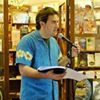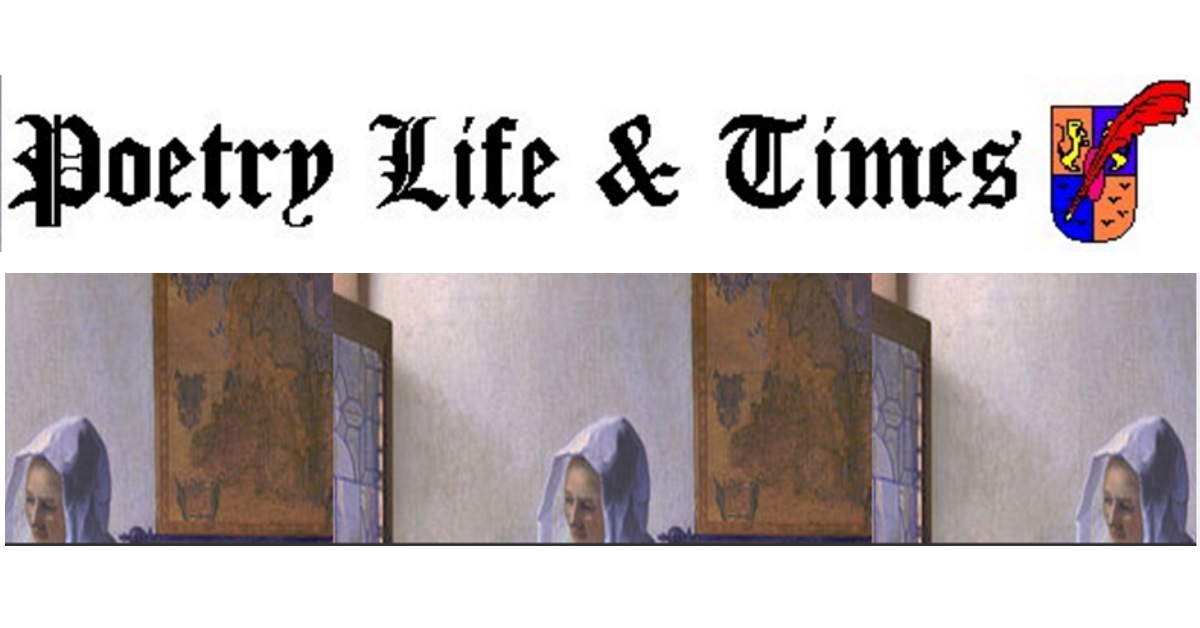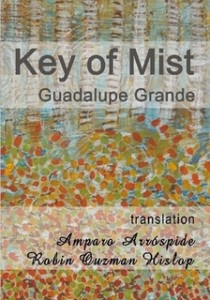Language is the territory of the common, of the community. Through my writing I try to make visible not only what is not so due to our sensory handicap, but what has been made invisible: small daily holocausts, omissions, our most intimate violence.
Poetic language contains the seed of insubordination, of becoming disobedient to a way of looking at the world and naming it; politics is the place where we situate ourselves to articulate as speakers, enlightened, subaltern, omniscient, decentered, etc.
It does not matter if we do it about a bird, a milk tooth or an intimate event. In my opinion, the political load of a poem is not dependent on certain topics, but on the insistence that invites us to breathe in a system that otherwise suffocates us, to resist so that we don’t let our eyelids drop in resignation.
Editor’s Note: extract from an interview with Laura Giordani. http://www.tendencias21.net/ Laura-Giordani-La-poesia- contiene-la-semilla-de-la- insumision_a13660.html
————————–
(i.)
[Qué te hicieron caballito, que las manos de tu amo
se hundan en tu carne abierta
hasta que llore polvo de ladrillo,
hasta que la fusta con que te azotaba
caiga con él de rodillas.
Con manos imantadas
Hundir los dedos en la tierra negrísima de la infancia, Cuando las yemas ardan, escarbar con manos imantadas por una ternura abandonada junto a los restos: el desguace nuestro.
Botones sueltos, fotografías de familia: los esposos en un muelle con cuatro hijos y dos baúles, un viejo de ojos claros junto a su silla de enea, escarpines de lana amarilleando sin término, el ajuar con las mismas iniciales de aquel ataúd chiquito y blanco.
Un mechoncito rubio en la mano, único consuelo.
Mujeres pariendo en camas de hierro, niños amamantados por cabras.
[veni, sonnu, di la muntanedda
lu lupu si mangiau la picuredda
oi ninì
ninna vò fa
A la infancia a través de las manos, palpar el fondo de los cajones para conocer el revés nuestro, las costuras de un relato siempre en hilachas.
Ella se fue y algo se rompió dentro
[algo sordo, como llorando.
Escondimos las rodillas lastimadas por el pavimento.
Llegaron como una peste las palabras y las llevamos a la boca creyendo en su alimento.
Los contornos adquirieron relieve, los pétalos del corazón fueron cayendo –uno a uno—como en aquel juego.
Sobrevino la sintaxis, la separación, el desastre.
[La guardiana del tacto]
Con guantes de goma anaranjada ella ahogaba los cachorros recién nacidos en el fuentón de lata: no son puros, seguro que fueron los perros de Moroni – sentenciaba y aguantando la respiración hundía a los perritos todavía ciegos, buscando el calor de la collie que aullaba junto a la puerta. Anegaba sus pulmones en el fondo hasta que flotaran y los metía en una bolsa de nylon que cerraba con nudos bien apretados. Luego se sacaba los guantes color naranja y con esas mismas manos cortaba el pan y trenzaba el pelo de mi amiga Alejandra.
[Todavía me persigue el llanto de aquella perra,
el frío mortal del lavadero.
Mi amiga creció, tuvo hijos, otra casa. Su madre siguió baldeando con desvelo la vereda cada mañana, ahogando – primavera tras primavera—perros sin raza.
[Extraño país]
(ii.)
With orange rubber gloves, she, my friend’s mother, drowned the new born pups, in a tin basin.
These are mongrels, sure from old Morini’s, she judged, as she held her breath to drown the still blind puppies as they searched the warmth of the collie, who howled beside the laundry door.
She flooded their lungs in the bottom until they floated putting them into a nylon bag that she tied in the tightest of knots.
Afterwards, she took off those orange rubber gloves and with the same hands cut bread and braided my friend Alejandra’s hair.
[Now the howl still haunts me
deadly cold in the wash place.
My friend grew up, had children, another house. Her mother continued every morning to thoroughly wash the pavement down drowning spring after spring mixed breeds.
[ Strange Country]
(iii.)
El sobretodo azul que pusiste
sobre los hombros de la muchacha aquella
volvía empapada del interrogatorio
temblando
la mojaban la picaneaban*
cada noche
la dejaban junto a tu colchón
con un llanto parecido al de un cachorro
ese gesto a pesar del miedo
a pesar del miedo te sacaste el sobretodo azul
para abrigarla
no poder dejar de darle ese casi todo
en medio del sobretodo espanto
la dignidad puede resistir
azul
en apenas dos metros de tela
y en esos centímetros que tu mano
sorteó en la oscuridad hasta sus hombros
sobre todo
[El sobretodo azul]
(iii.)
The blue overcoat you put on
over the shoulders of the girl
soaked from interrogation
shaking
watered tortured with the picana
each night
they´d left her next to your mattress
with a puppylike whimper
that gesture despite the fear
over all the fear you took off your blue overcoat
to warm her
unable to resist giving over all
over all the horror
in its midst
dignity can stand
blue
in just two meters of cloth
those centimeters your hand
covered in the dark over her shoulders
over all else.
[The blue overcoat]

Laura Giordani (1964, Córdoba, Argentina)
Because of the Argentine military dictatorship, in the late 1970s she went into exile with her family in Spain, where she has lived almost half her life.
She studied Psychology, Fine Arts and English language.
She participates in writers´meetings and gives poetic recitals in Argentina and Spain.
She has written the following poetry collections: Apurando la copa (2001), Celebración del brote (2003), Cartografía de lo blando (2005), Noche sin clausura (2006), Sudestada (2009), Materia oscura (2010) and Antes de desaparecer (2016).
Her poems have been included in several anthologies, she has also collaborated in journals from Argentina, Brazil, Germany and Spain.
The following link reviews her latest work Antes de desaparecer ( Before disappearing) from which the above poems are extracts http://www.tendencias21.net/Antes-de-desaparecer–de-Laura-Giordani-una-manera-de-ampararse_a32021.html
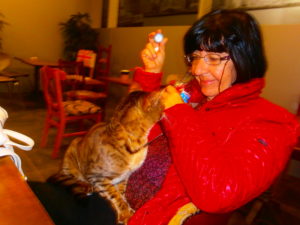
Amparo Arróspide (Argentina) has published five poetry collections: Presencia en el Misterio, Mosaicos bajo la hiedra, Alucinación en dos actos y algunos poemas, Pañuelos de usar y tirar and En el oído del viento, as well as poems, short stories and articles on literature and films in anthologies and international magazines. She has translated authors such as Francisca Aguirre, Javier Díaz Gil, Luis Fores and José Antonio Pamies into English, together with Robin Ouzman Hislop, who she worked with for a period as co-editor of Poetry Life and Times, a Webzine. Her translations into Spanish of Margaret Atwood (Morning in the Burned House), James Stephens (Irish Fairy Tales) and Mia Couto (Vinte e Zinco) are in the course of being published, as well as her two poetry collections Hormigas en diáspora and Jacuzzi. She takes part in festivals, recently Transforming with Poetry (Leeds) and Centro de Poesía José Hierro (Getafe).
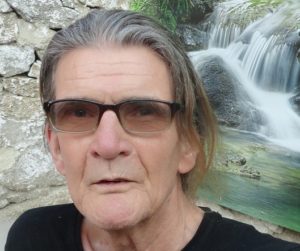
Robin Ouzman Hislop is on line Editor Poetry Life & Times, his recent publications include Voices without Borders Volume 1 (USA), Cold Mountain Review (Appalachian University, N.Carolina), The Poetic Bond Volumes, Phoenix Rising from the Ashes (an international anthology of sonnets) and The Honest Ulsterman. His last publications are a volume of collected poems All the Babble of the Souk & Key of Mist, a translation from Spanish of the poems by the Spanish poetess Guadalupe Grande, both are published by Aquillrelle.com and available at all main online tributaries. For further information about these publications with reviews and comments see Author Robin..
www.facebook.com/PoetryLifeTimes
robin@artvilla.com
editor@artvilla.com
Key of Mist. Guadalupe Grande.Translated.Amparo Arróspide.Robin Ouzman Hislop
goodreads.com/author/show/Robin Ouzman Hislop
http://www.aquillrelle.com/authorrobin.htm
http://www.amazon.com. All the Babble of the Souk. Robin Ouzman Hislop
www.lulu.com. All the Babble of the Souk. Robin Ouzman Hislop
https://www.amazon.com/author/robinouzmanhislop

